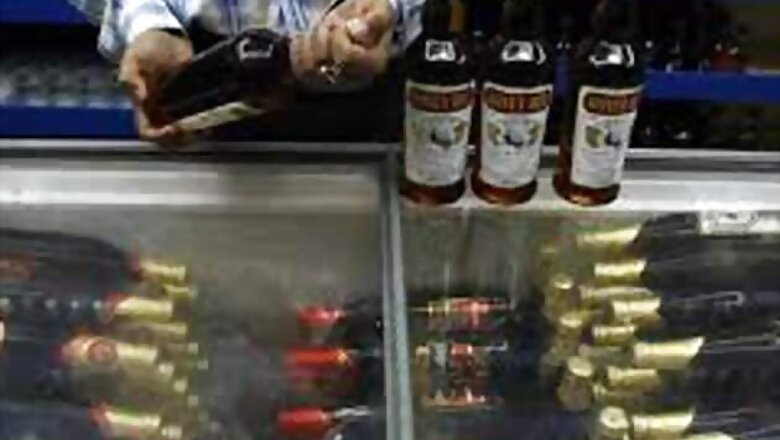
views
Thiruvananthapuram: Amid growing concerns over the impact of Kerala Government's new liquor policy on tourism industry, many stakeholders in the sector believe that liquor is not a prerequisite for tourism promotion.
Some resort operators said the new policy, envisaged to cut short the availability of liquor, might affect the tourism industry in the initial stages but the impact could be overcome with proper awareness in the long run.
The success of tourism industry in Gujarat, where total prohibition exist, was the best example for Kerala to emulate, they said. With regard to the anxiety that arrival of foreign tourists might be hit badly with the new policy, major tour operators pointed out that "foreign tourists are not crazy about liquor. As far as they are concerned alcohol is only a part of their food habit."
IATA Agents Association of India (IAAI) National Director PB Bose said that it was wrong to say that foreign and domestic tourists were coming to Kerala just to savour liquor. "Most tourists come to experience the culture and see places and watch development of each state," he said, adding, what was required now was to create an awareness among potential tourists about the new law in the state.
"Tourists would definitely respect the new law", he said. "We have already started an awareness programme in this regard through the tour agents," he said. However, he said certain anxiety has been generated with queries coming on the new policy, but there has been no major cancellation of any tourist booking in the name of liquor policy.
As per the new policy, only five-star hotels in the state would be allowed to serve liquor. Besides, this, the policy also envisages closing down 10 per cent of the 400-odd retail outlets of Kerala State Beverages Corporation every year with an aim to have total prohibition in ten years time.
A Supreme Court bench has asked the Kerala High Court to hear a plea of the Bar Owners Association which challenged the state government order asking them to shut down bars before September 30.
Asserting that liquor was not inevitable for tourism growth, Bose said the industry was of the opinion that even if the new policy would pose a hurdle for its growth, "we should overcome with proper planning."
He also said in the short period itself, they were able to convince many tourists on the new liquor policy. "None of them got offended," he added.
However, he expressed reservation on the prospects of "conference tourism" conducted by multi-national companies getting popular in the state. This type of tourism consists of a group of people in which 'work is mixed with leisure,' he said, adding, the policy might have some adverse effect.
Stating that social media is playing a vital role for the growth of tourism, he said flow of foreign tourists, especially from European countries to Alappuzha backwaters and hill-station Munnar, has increased in recent years.
"This is primarily due to the social media network." Jose Mathew, former Secretary of House Boat Owners Association based in Alappuzha, expressed confidence that industry could overcome the problems in the long run.
He termed as 'exaggerated' reports that there was rampant cancellation of tour programmes by domestic and foreign tourists. "Liquor is not an unavoidable factor for flow of tourists," he said.
The upcoming Kerala Tourism Mart would definitely discuss the new liquor policy and would arrive at a practical solution in this regard, he added.




















Comments
0 comment